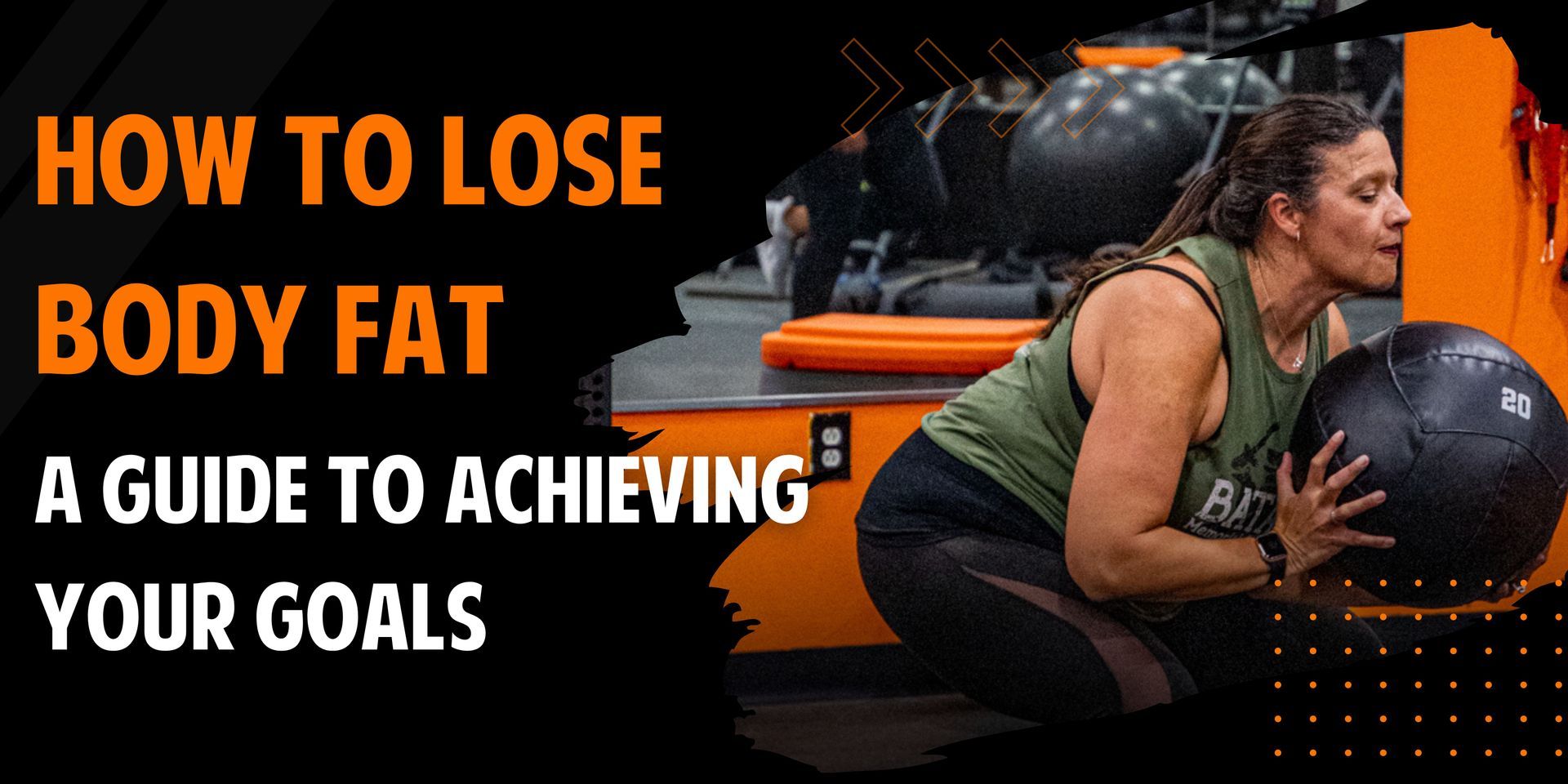How to lose body fat: a guide to achieving your goals
How To Lose Body Fat: A Guide to Achieving Your Goals

Losing body fat is a goal for many people, but it can be challenging to know where to start. Understanding the basics of fat loss and the different ways to achieve it is essential. We will cover the basics of losing body fat, the benefits of doing so, and how to make a plan that works for you.
The most crucial factor in fat loss is creating a calorie deficit. This means that you need to consume fewer calories than you burn in a day. When you do this, your body will be forced to use stored fat as energy, leading to fat loss.
It’s important to note that fat loss is different from weight loss. Weight loss can involve fat and muscle loss, while fat loss is about reducing body fat. This guide will focus on fat loss, the best way to improve your overall health and fitness.
Benefits of Losing Body Fat
There are many benefits to losing body fat. It can help improve your overall health, as well as improve physical performance. Here are more benefits of losing body fat:
Lower risk of chronic diseases: One of the significant benefits of losing body fat is a lower risk of chronic conditions, such as heart disease, stroke, high blood pressure, and diabetes.- Improved energy levels: When you lose body fat, you’ll have more energy throughout the day. This can make staying active and getting through your daily tasks easier.
- Improved physical performance: When you lose body fat, you’ll be able to move more efficiently and be better able to perform physical activities.
- Improved body composition: When you lose body fat, you’ll be able to achieve a healthier body composition, which can help you look and feel better.

What is the Healthy Way to Lose Body Fat?
The healthy way to lose body fat is to create a calorie deficit through a whole food diet and exercise. This means you need to consume fewer calories than you burn in a day. This can be achieved by reducing your calorie intake and
increasing your activity levels.
It’s important to note that crash diets and extreme exercise programs are not the best way to lose body fat. These can lead to muscle loss and decreased energy levels, harming your health. Instead, it’s best to focus on creating a sustainable calorie deficit and sticking to it.
How to Make a Diet Plan for Losing Body Fat
Creating a diet plan for losing body fat is essential to your fat-loss journey. It’s crucial to ensure your diet is balanced and provides the nutrients you need. Here are some tips for creating a diet plan for fat loss:
- Increase your intake of fruits and vegetables: Fruits and vegetables are packed with essential vitamins, minerals, and fiber. They’re also low in calories, making them ideal for fat loss.
- Avoid processed and refined foods: Processed and refined foods are usually high in calories and low in nutrients. So it’s best to avoid these as much as possible.
- Focus on whole foods: Whole foods, such as lean proteins, whole grains, and healthy fats, are packed with nutrients and can help you stay full for longer.
- Keep track of your calorie intake: It’s essential to keep track of your calorie intake to ensure you’re creating a calorie deficit. You can use a calorie-tracking app or a food journal.
- Stay hydrated: Staying hydrated can help you feel fuller for longer and help your body function optimally.
Types of Exercise for Losing Body Fat
Exercise is an essential part of any fat loss plan. It helps create a calorie deficit and can help you build muscle, leading to a higher metabolism and more fat loss. Here are some types of exercise that can help you lose body fat:
- Cardio: Cardio, such as running, cycling, and swimming, is a great way to burn calories and lose body fat.
- Strength training: Strength training, such as weight lifting and bodyweight exercises, can help you build muscle, which can help increase your metabolism and burn more calories.
- High-intensity interval training (HIIT): HIIT involves alternating between high and low-intensity periods. This can help you burn calories more quickly and effectively.
- Yoga: Yoga is a great way to improve your overall fitness and can help reduce stress, leading to fat loss.

Tips for Sticking to Your Diet and Exercise Plan for Losing Body Fat
Sticking to a diet and exercise plan for fat loss can be challenging. Here are some tips to help you stay on track:
- Set realistic goals: Goals will help you stay motivated and focused. Make sure your goals are specific, measurable, attainable, relevant, and timely.
- Find an accountability partner: Find someone to hold you accountable for your goals. This can be a friend, family member, or even a trainer.
- Track your progress: Tracking your progress can help you stay motivated and on track. For example, you can use a tracking app or a food journal to help you stay on track.
- Reward yourself: Reward yourself for reaching your goals. This can help you stay motivated and on track.
- Don’t be too hard on yourself: Everyone has bad days, and that’s ok. So don’t be too hard on yourself; take it one day at a time.
Avoiding Common Mistakes When Losing Body Fat
It’s easy to make mistakes when trying to lose body fat. Here are some common mistakes to avoid:
- Not getting enough sleep: Sleep is an integral part of fat loss. However, not getting enough sleep can lead to increased hunger and cravings, making it harder to stick to your plan.
- Not eating enough: Not eating enough can lead to fatigue and decreased performance. Make sure to eat enough to fuel your body.
- Not being consistent: Consistency is vital when it comes to fat loss. So make sure to stick to your plan, and don’t give up if you don’t see results immediately.
- Not drinking enough water: Staying hydrated is essential for fat loss. So make sure to drink enough water throughout the day.
- Not taking rest days: Rest days are essential to any exercise program. So, take at least one day off a week to rest and recover.
What to Do If You Can't Lose Body Fat
If you’re having trouble losing body fat, you can do a few things. Here are some tips to help you get back on track:
Re-evaluate your diet: Look at your diet and ensure it’s balanced and provides you with the nutrients you need.- Increase your activity levels: If you’re not getting enough physical activity, try to increase it. This can help you create a calorie deficit and burn more calories.
- Talk to a professional: If you’re still struggling to lose body fat, talk to a professional. A dietitian or personal trainer can help you create a plan tailored to your needs.
Conclusion
Losing body fat can be a challenging but rewarding journey. Understanding the basics of fat loss is essential as creating a plan that works for you.
Start by setting realistic goals and creating a balanced diet and exercise plan. Then, with consistency and dedication, you’ll be able to achieve your fat loss goals.
